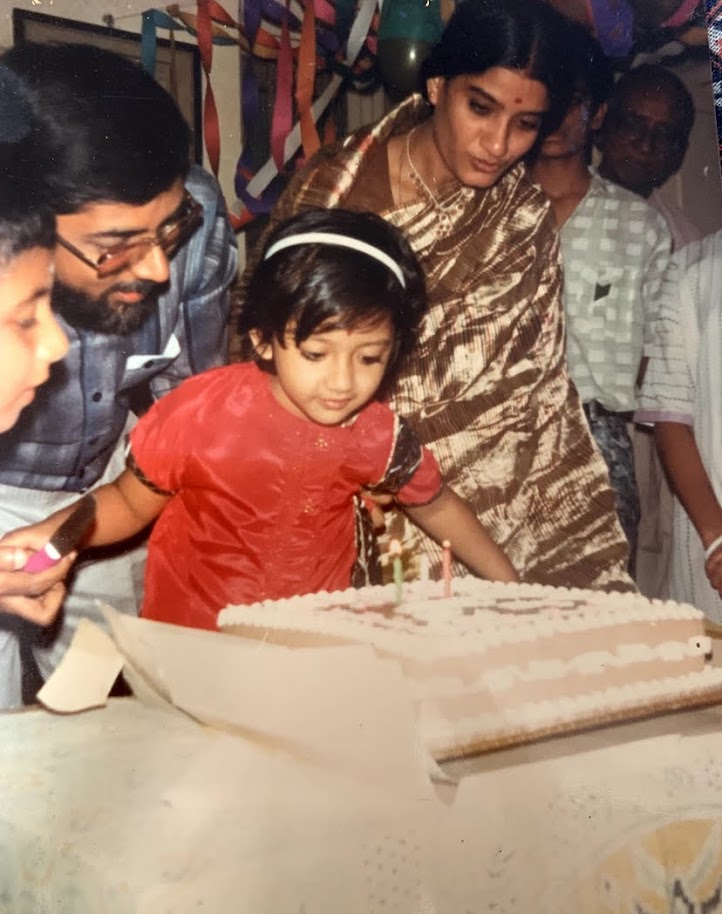Inspired by a question Swati (@mayas_amma) asked on her stories.
I think at some point as you grow up, whether you’re a parent or not, whether you want to or not, you start seeing parts of your parents in you. Or, you do all you can to ensure that you don’t.
My parents were conscious adults before gentle parenting was a thing. I self-fed, was read to, did school work my way, chose my own clothes/books, and knew that I could opt out of anything, including family functions or ceremonies. They celebrated the small things, modeled communication with each other, and made it a point to both be present for anything that was important to me. Pre-lockdown, they’d both come to whichever city I was in to celebrate my birthday, even in my 30s! They definitely never raised a hand on anyone… in fact, if one happened to shout at me, the other wouldn’t, so that I’d have a safe harbour.

Nor were they the exception. Quite a lot of my friends growing up had similar relationships with their parents. So, as a 2nd generation aware-parent, you’d think it would come easier to me. In a lot of ways, it does. I don’t have many childhood wounds to heal from.
It’s a no-brainer treating my children as individuals, for instance, or giving them choices. I encourage their independence, and don’t see it as a threat to my relevance as a parent. I enjoy giving them space and having space of my own.
That said, I know one thing for sure: having gentle parents does not guarantee you’ll grow up to be patient yourself. I am living proof of that. I work very hard every day to rein in my temper, and don’t always succeed. This makes me infinitely guilty, because I’ve no excuse! To my relief, I have children who call me out when I’m being hypocritical. I love that we all know it isn’t normal to be treated as less-than.
There are a few things I do as a reaction to my childhood, for better or for worse.
1. I feel there’s a thin line between gentleness and permissiveness.
There are only so many sound decisions a young child can make for themselves, and it’s important, as adults, to sometimes step in and draw firm lines until children can do this for themselves. I’m still finding a balance between how often to step in, and, given my parents didn’t, I tend to err on the side of being firm.
2. Given our conservative background, my parents sent clear signals on what they weren’t ok discussing with us.
As a result, I told them a lot on a need-to-know basis, and there are parts of my life I don’t share. I don’t judge them for it, but I prefer a more transparent approach with my children.
3. I don’t think my parents challenged me, or each other, on much.
As a result, I find it hard not to take feedback personally. I also find it hard to call people out, or confront them. It’s a work in progress, and one that I hope I’m able to help my children get to sooner in their lives.
I love that what I did/how well I did it was up to me. That said, I believe there’s no harm in calling it out to children when they are repeatedly taking the easy route and not stepping out of their comfort zones.
I guess what I’m saying is: being gentle and respectful is important, as parents or otherwise. What is also important is being communicative, self-aware, aware of the world around you, and willing to evolve. My parents weren’t perfect, neither am I. We all make our own mistakes.
I know the million dollar question is: do people walk all over me as an adult? How do I survive in a dog-eats-dog world? That’s coming up next.

